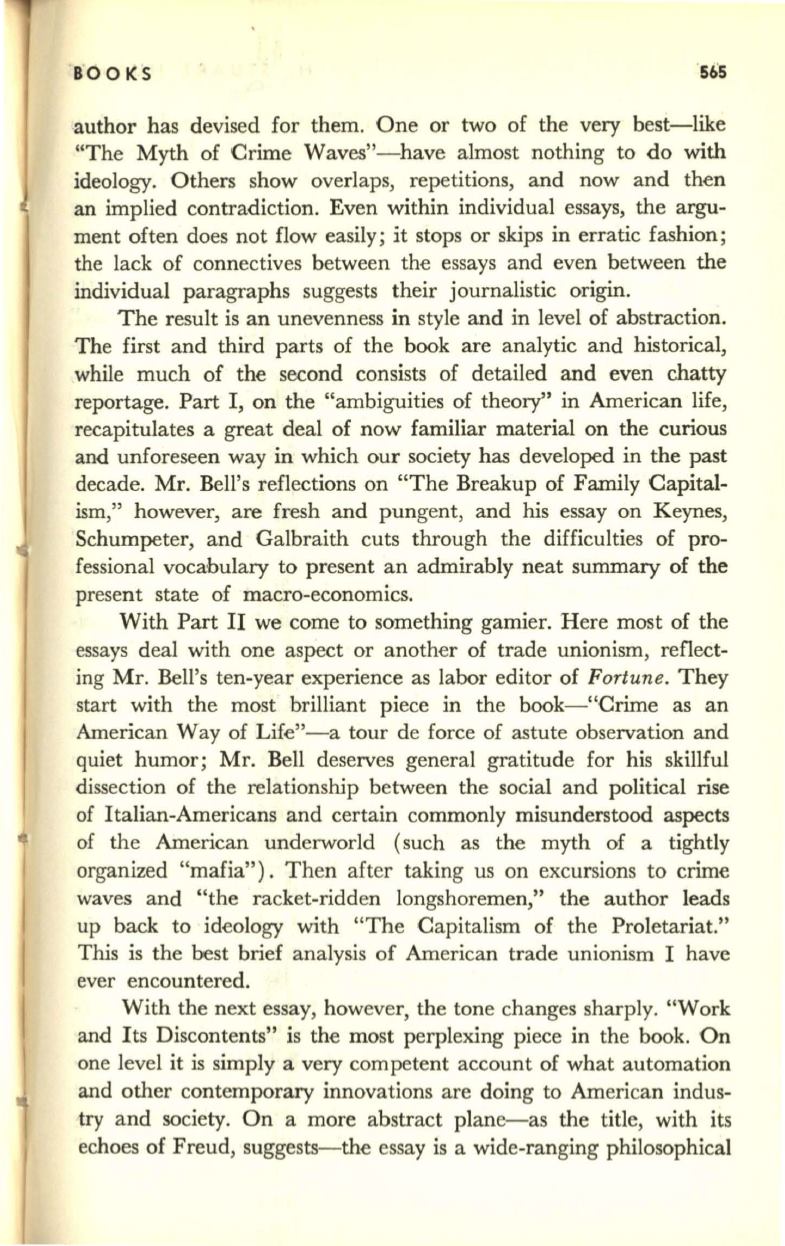
BOO KS
565
author has devised for them. One or two of the very best-like
"The Myth of Crime Waves"- have almost nothing to do with
ideology. Others show overlaps, repetitions, and now and then
an implied contradiction. Even within individual essays, the argu–
ment often does not flow easily; it stops or skips in erratic fashion;
the lack of connectives between the essays and even between the
individual paragraphs suggests their journalistic origin.
The result is an unevenness in style and in level of abstraction.
The first and third parts of the book are analytic and historical,
while much of the second consists of detailed and even chatty
reportage. Part I, on the "ambiguities of theory" in American life,
recapitulates a great deal of now familiar material on the curious
and unforeseen way in which our society has developed in the past
decade. Mr. Bell's reflections on "The Breakup of Family Capital–
ism," however, are fresh and pungent, and his essay on Keynes,
Schumpeter, and Galbraith cuts through the difficulties of pro–
fessional vocabulary to present an admirably neat summary of the
present state of macro-economics.
With Part II we come to something gamier. Here most of the
essays deal with one aspect or another of trade unionism, reflect–
ing Mr. Bell's ten-year experience as labor editor of
Fortune.
They
start with the most brilliant piece in the book-"Crime as an
American Way of Life"-a tour de force of astute observation and
quiet humor; Mr. Bell deserves general gratitude for his skillful
dissection of the relationship between the social and political rise
of Italian-Americans and certain commonly misunderstood aspects
of the American underworld (such as the myth of a tightly
organized "mafia"). Then after taking us on excursions to crime
waves and "the racket-ridden longshoremen," the author leads
up back to ideology with "The Capitalism of the Proletariat."
This is the best brief analysis of American trade unionism I have
ever encountered.
With the next essay, however, the tone changes sharply. "Work
and Its Discontents" is the most perplexing piece in the book. On
one level it is simply a very competent account of what automation
and other contemporary innovations are doing to American indus–
try and society. On a more abstract plane-as the title, with its
echoes of Freud, suggests-the essay is a wide-ranging philosophical


